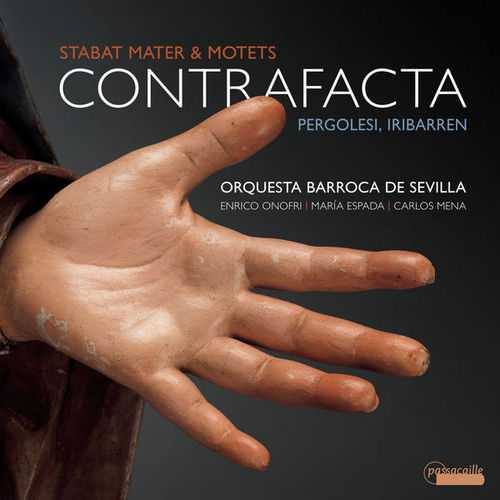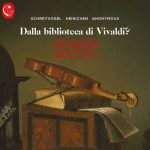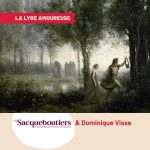
Composer: Giovanni Battista Pergolesi, Juan Francés de Iribarren
Performer: Maria Espada, Carlos Mena
Orchestra: Orquesta Barroca de Sevilla
Conductor: Enrico Onofri
Format: FLAC (tracks)
Label: Passacaille
Release: 2021
Size: 1.01 GB
Recovery: +3%
Scan: yes
Pergolesi, Anonymous: Stabat Mater in F Minor, P. 77
01. I. Stabat Mater dolorosa (Soprano, Alto). Grave assai
02. II. Cujus animam gementem (Soprano). Andante amoroso
03. III. O quam tristis et afflicta (Soprano, Alto). Andante
04. IV. Quae moerebat et dolebat (Alto). Allegro commodo
05. V. Quis est homo qui non fleret (Soprano, Alto). Largo
06. VI. Vidit suum dulcem natum (Soprano). Andante amoroso
07. VII. Eja, Mater fons amoris (Alto). Andante
08. VIII. Fac, ut ardeat cor meum (Soprano, Alto). Fuga
09. IX. Sancta Mater, istud agas (Soprano, Alto). Andante
10. X. Fac, ut portem Christi mortem (Alto). Largo assai
11. XI. Inflammatus et accensus (Soprano, Alto). Allegro non presto
12. XIIa. Quando corpus morietur (Soprano, Alto). Largo assai
13. XIIb. Amen (Soprano, Alto). Fuga
14. Iribarren, Anonymous: Ave Maria, gratia plena (Motete)
15. Iribarren, Anonymous: Ego sum panis vivus (Motete al Santísimo)
16. Iribarren, Anonymous: Sabia extensión – Cantata al Santísimo: I. Recitado, “Sabia extensión de afecto” – II. Area, “Qué gozoso dulce acento” (Allegro)
17. Iribarren, Anonymous: Ego dormivi et somnum cepi (Motete a la Resurrección)
18. Iribarren, Anonymous: Te invocamus (Motete a la Santísima Trinidad)
19. Iribarren, Anonymous: Lamentación Segunda del Viernes Santo
Pergolesi’s Stabat Mater was extremely popular throughout Europe soon after it was composed in 1736. Countless printed and handwritten versions of this work, which was considered the stylistic ideal of sacred music in the 18th century, can be found in libraries all over the world. There are five manuscript copies of the Stabat Mater in the archives of Málaga Cathedral. This recording presents a version performed when Juan Francés de Iribarren was chapel master there. He did not copy the work exactly, but created a revision with substantial changes. Also included in the recording are some of Iribarren’s own works.



